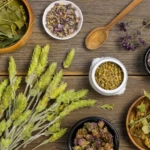
In today’s fast-paced world, our immune systems face constant stress from environmental pollutants, unhealthy diets, and lack of physical activity. While modern medicine provides a range of solutions, an increasing number of people are turning to nature to enhance their immunity. Among the most effective and sustainable ways to strengthen your body’s defenses is through natural remedies using plants. Plants have been used for centuries in various cultures to support the immune system, fight off illnesses, and promote overall health. This article explores some of the most powerful and scientifically-backed natural remedies for boosting immunity, focusing on the incredible healing power of plants.
Introduction to Natural Remedies for Boosting Immunity
The immune system is the body’s natural defense mechanism, designed to fight off harmful pathogens such as bacteria, viruses, and fungi. When our immune system is compromised, we become more vulnerable to infections, fatigue, and diseases. Fortunately, nature provides us with a wide range of plants that contain bioactive compounds capable of enhancing immune function. Many of these plants have been used for centuries in traditional medicine and have proven their effectiveness in modern studies. Research by Harvard Medical School suggests that certain herbs, spices, and plant-based supplements can support immune health, reduce inflammation, and improve overall well-being.
Popular Plants That Boost Immunity
1. Echinacea: A Powerhouse Herb for Immune Support
Echinacea is one of the most well-known plants for immune health. Often used to prevent and treat colds, this herb stimulates the production of white blood cells, which are essential for defending the body against infection. Several studies, including one from the National Institutes of Health (NIH), have shown that Echinacea can reduce the duration and severity of cold symptoms. It is also known for its anti-inflammatory and antioxidant properties, which help reduce oxidative stress and protect cells from damage.
2. Garlic (Allium sativum): Nature’s Antibiotic
Garlic has long been revered for its medicinal properties. It contains a compound called allicin, which has antibacterial, antiviral, and antifungal properties. According to The Journal of Immunology, garlic enhances the production of immune cells, such as macrophages and T lymphocytes, which are crucial for combating infections. Regular consumption of garlic may also help reduce the risk of chronic illnesses, including heart disease, diabetes, and cancer.
3. Ginger: A Powerful Anti-inflammatory Agent
Ginger is another plant widely known for its health benefits, particularly its ability to boost immunity. The active compound in ginger, gingerol, has potent antioxidant and anti-inflammatory properties that help the body fight off infections. A study published in PubMed Central demonstrated that ginger can enhance the immune system by promoting the production of certain immune cells and stimulating the body’s response to infections. Ginger is also helpful in reducing symptoms of respiratory infections and improving gut health, which is crucial for immune function.
4. Turmeric: The Golden Spice for Immunity
Turmeric, primarily known for its active compound curcumin, is a powerful anti-inflammatory agent that can help modulate the immune system. Curcumin has been shown to stimulate the production of various immune cells, such as T-cells, and inhibit the activity of harmful cytokines, which are responsible for inflammation. According to a study published in the National Library of Medicine, turmeric may also improve the body’s defense against infections and reduce the risk of autoimmune diseases. Including turmeric in your daily diet can be as simple as adding it to soups, smoothies, or teas.
5. Astragalus Root: A Traditional Immunity Booster
Astragalus root is a staple in traditional Chinese medicine, used for centuries to enhance vitality and immune function. It is particularly beneficial for people with weakened immune systems. The herb works by stimulating the production of immune cells and enhancing the body’s response to pathogens. According to a study in the Journal of Ethnopharmacology, astragalus has been shown to increase the body’s resistance to infections and improve overall immune function. Astragalus is often taken in the form of a tincture, capsule, or tea.
6. Elderberry: Nature’s Flu Fighter
Elderberry, particularly the fruit of the Sambucus nigra plant, is renowned for its ability to prevent and reduce the symptoms of flu and colds. Rich in antioxidants and vitamins A and C, elderberries contain anthocyanins that help boost immune function. Research published by the National Institute of Health suggests that elderberry extract may reduce the duration of flu symptoms by inhibiting the replication of influenza viruses. Elderberry syrup is a popular remedy during the flu season for its ability to strengthen immune defenses and ease symptoms.
7. Andrographis: The Immune System Modulator
Andrographis paniculata, commonly known as Andrographis, is an herb used in traditional Ayurvedic and Chinese medicine for its ability to combat infections and enhance immune function. It has antimicrobial, antiviral, and anti-inflammatory properties that make it effective against various pathogens. A study published in the Journal of Clinical Pharmacy and Therapeutics demonstrated that Andrographis could significantly reduce the duration and severity of upper respiratory infections, making it an excellent herb for boosting immunity during flu season.
Comparative: Best Plants for Boosting Immunity
| Plant | Key Active Compound | Immune-Boosting Mechanism | Best For | Source Link |
|---|---|---|---|---|
| Echinacea | Alkylamides | Stimulates white blood cell production | Cold prevention, respiratory infections | NIH |
| Garlic | Allicin | Antibacterial, antiviral, and antifungal | General immune support, heart health | The Journal of Immunology |
| Ginger | Gingerol | Antioxidant and anti-inflammatory | Respiratory infections, gut health | PubMed Central |
| Turmeric | Curcumin | Reduces inflammation, stimulates immune cells | Immune modulation, anti-inflammatory | National Library of Medicine |
| Astragalus Root | Astragaloside | Stimulates immune cell production | Immune system support, vitality | Journal of Ethnopharmacology |
| Elderberry | Anthocyanins | Inhibits viral replication, antioxidant | Flu prevention, cold relief | National Institute of Health |
| Andrographis | Andrographolide | Antimicrobial, anti-inflammatory | Upper respiratory infections | Journal of Clinical Pharmacy |
How to Use Plants for Immune Support
Teas and Infusions
One of the easiest ways to incorporate immune-boosting plants into your routine is by drinking herbal teas. Many of the herbs mentioned above, such as Echinacea, ginger, and turmeric, can be brewed into soothing teas. Simply steep a teaspoon of dried herbs in hot water for 5-10 minutes. You can also add honey, lemon, or cinnamon for added flavor and health benefits.
Tinctures and Extracts
Tinctures are concentrated extracts of plants that are typically taken in small doses. These can be a more potent way to consume immune-boosting herbs like elderberry and astragalus. Tinctures are available in most health food stores or can be made at home by soaking dried herbs in alcohol or vinegar.
Capsules and Tablets
For those who prefer a more convenient method of supplementation, capsules and tablets containing concentrated plant extracts are widely available. Many immune-boosting supplements contain a combination of the herbs listed above, providing a broad spectrum of immune support.
Fresh Plants
Incorporating fresh herbs into your meals is another great way to boost your immunity. Fresh garlic, ginger, and turmeric can be added to soups, salads, smoothies, and stir-fries. Many of these plants retain their medicinal properties when consumed fresh and can be a flavorful addition to your diet.
FAQs on Natural Remedies for Boosting Immunity
1. How do plants boost immunity?
Plants boost immunity by providing essential nutrients, antioxidants, and bioactive compounds that support the production of immune cells, reduce inflammation, and enhance the body’s ability to fight infections. Many plants also contain compounds that help regulate the immune system and protect cells from oxidative stress.
2. Are natural remedies for immunity safe?
Natural remedies can be safe when used correctly and in moderation. However, some herbs may interact with medications or cause side effects in certain individuals. It is essential to consult with a healthcare professional before starting any new herbal supplement or remedy, especially if you are pregnant, nursing, or have underlying health conditions.
3. Can I replace vaccinations with natural immunity-boosting plants?
While natural remedies can support immune health, they are not a substitute for vaccinations. Vaccines are scientifically proven to provide long-term protection against specific diseases, while plants and herbs help support general immune function. Always consult a healthcare provider for vaccination advice.
4. How long does it take for natural remedies to boost immunity?
The time it takes for natural remedies to have an effect can vary depending on the individual and the plant used. Some people may notice improvements in immune function within a few days, while for others, it may take weeks. Consistency is key to seeing long-term benefits.
Conclusion
Incorporating natural remedies for boosting immunity with plants into your daily routine can significantly enhance your body’s ability to fend off illness. From garlic and ginger to elderberry and turmeric, these plants offer a range of immune-supporting benefits. The power of plants lies in their ability to provide a wide array of nutrients and compounds that work synergistically to promote a healthy immune system. Whether you prefer teas, tinctures, or fresh herbs, there are many ways to incorporate these plants into your lifestyle for optimal health. Remember that a balanced diet, regular exercise, and proper rest are also crucial for maintaining a strong immune system. Always consult with a healthcare provider before introducing new supplements into your routine, especially if you are on medication or have pre-existing health conditions. By harnessing the power of plants, you can take a proactive step towards strengthening your immunity and overall well-being.









